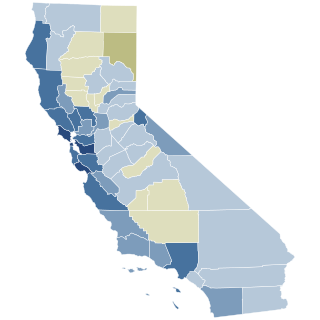
The legality of abortion in the United States and the various restrictions imposed on the procedure vary significantly, depending on the laws of each state or other jurisdiction, although there is no uniform federal law. Some states prohibit abortion at all stages of pregnancy, with few exceptions; others permit it up to a certain point in a woman's pregnancy, while some allow abortion throughout a woman's pregnancy. In states where abortion is legal, several classes of restrictions on the procedure may exist, such as parental consent or notification laws, requirements that patients be shown an ultrasound before obtaining an abortion, mandatory waiting periods, and counseling requirements.

Colorado Amendment 62 was an initiated constitutional amendment that appeared on the November 2, 2010 ballot defining personhood as “every human being from the beginning of the biological development of that human being.” It sought to ban abortion in the state of Colorado and challenge Roe v. Wade.
Abortion in Arizona is currently legal up to 15 weeks of pregnancy.
Abortion in Colorado is legal at all stages of pregnancy. It is one of seven states without any term restrictions as to when a pregnancy can be terminated.
Abortion in Michigan is legal throughout pregnancy. A state constitutional amendment to explicitly guarantee abortion rights was placed on the ballot in 2022 as Michigan Proposal 22–3; it passed with 57 percent of the vote, adding the right to abortion and contraceptive use to the Michigan Constitution. The amendment largely prevents the regulation of abortion before fetal viability, unless said regulations are to protect the individual seeking an abortion, and it also makes it unconstitutional to make laws restricting abortions which would protect the life and health, physical and/or mental, of the pregnant individual seeking abortion.

The 2022 California elections took place on November 8, 2022. The statewide direct primary election was held on June 7, 2022.

The 2022 Kansas abortion referendum was a rejected legislatively referred constitutional amendment to the Kansas Constitution that appeared on the ballot on August 2, 2022, alongside primary elections for statewide offices, with early voting from July 13. If enacted, the amendment would have declared that the Kansas Constitution does not guarantee a right to abortion, giving the Kansas state government power to prosecute individuals involved in abortions, and further declared that the Kansas government is not required to fund abortions.

Proposition 1, titled Constitutional Right to Reproductive Freedom and initially known as Senate Constitutional Amendment 10 (SCA 10), was a California ballot proposition and state constitutional amendment that was voted on in the 2022 general election on November 8. Passing with more than two-thirds of the vote, the proposition amended the Constitution of California to explicitly grant the right to an abortion and contraceptives, making California among the first states in the nation to codify the right. The decision to propose the codification of abortion rights in the state constitution was precipitated in May 2022 by Politico's publishing of a leaked draft opinion showing the United States Supreme Court overturning Roe v. Wade and Planned Parenthood v. Casey in Dobbs v. Jackson Women's Health Organization. The decision reversed judicial precedent that previously held that the United States Constitution protected the right to an abortion.

2022 Michigan Proposal 3, the Right to Reproductive Freedom Initiative, also known as Reproductive Freedom for All, was a citizen-initiated proposed constitutional amendment in the state of Michigan, which was voted on as part of the 2022 Michigan elections. The amendment, which passed, codified reproductive rights, including access to abortion, in the Constitution of Michigan.
The following is a list of ballot measures, whether initiated by legislators or citizens, which have been certified to appear on various states' ballots during the 2024 United States elections as of 6 September 2024.

The 2023 Ohio reproductive rights initiative, officially titled "The Right to Reproductive Freedom with Protections for Health and Safety" and listed on the ballot as Issue 1, was a citizen-initiated constitutional amendment adopted on November 7, 2023, by a majority (56.8%) of voters. It codified reproductive rights in the Ohio Constitution, including contraception, fertility treatment, miscarriage care, and abortion up to the point of fetal viability, restoring Roe v. Wade-era access to abortion in Ohio.

The 2024 Maryland Question 1 is a voter referendum that will appear on the ballot on November 5, 2024. If passed, it would establish in the Constitution of Maryland a right to reproductive healthcare.

Florida Amendment 4 is a proposed amendment to the Florida Constitution that will be subject to a referendum on November 5, 2024. The amendment would preempt the Florida Legislature from restricting abortion before fetal viability and nullify existing statutes such as the Heartbeat Protection Act that currently do so. A 60% supermajority vote is required for the amendment to be approved.

The 2022 Vermont reproductive rights initiative, officially titled the "Reproductive Liberty Amendment", and listed on the ballot as Proposition 5, was a legislatively referred constitutional amendment that was adopted on November 8, 2022, by a landslide majority of 76.8% of voters. It codified reproductive rights in the Constitution of Vermont. It was signed into the constitution by governor Phil Scott on 13 December 2022.

The New York Equal Protection of Law Amendment is a proposed amendment to the New York Constitution that will be subject to a referendum on November 5, 2024.

South Dakota Amendment G is a proposed constitutional amendment that will appear on the ballot on November 5, 2024. If passed, the amendment would establish a right to abortion in the Constitution of South Dakota up until approximately the second trimester of pregnancy.

Arizona Proposition 139 is a proposed constitutional amendment that will appear on the ballot on November 5, 2024. If passed, the amendment would establish a right to abortion in the Constitution of Arizona up until fetal viability. A simple majority is needed for this proposition to pass.

2024 Missouri Constitutional Amendment 3, also known as the Right to Reproductive Freedom Initiative, is a proposed constitutional amendment that will appear on the ballot on November 5, 2024. If passed, the initiative would amend the Constitution of Missouri to legalize abortion in Missouri before fetal viability.
Nebraska Right to Abortion Initiative is a proposed constitutional amendment that will appear on the November 5, 2024 ballot in Nebraska. If passed, it would amend the Nebraska Constitution to establish a right to abortion until fetal viability.

Initiative 128 is a ballot initiative that will appear on the ballot on November 5, 2024. If passed, it would establish in the Constitution of Montana a right to abortion up to fetal viability.















